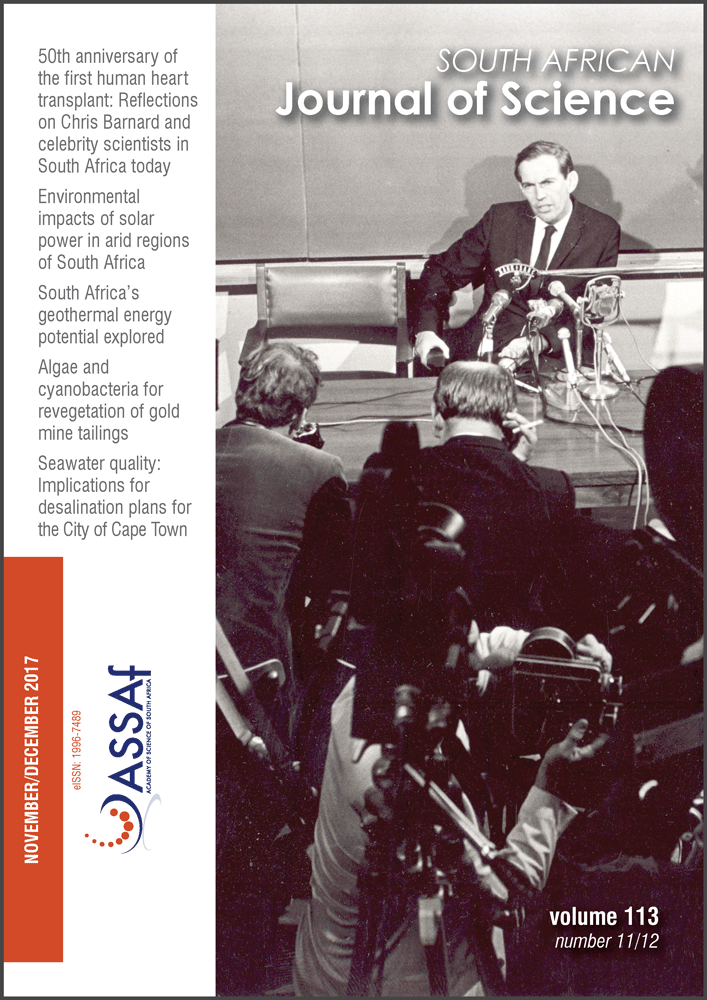Bibliometric analysis of the development of nanoscience research in South Africa
DOI:
https://doi.org/10.17159/sajs.2017/20160381Keywords:
nanotechnology, R&D policy, bibliometric methods, collaborationAbstract
Nanotechnology is a fast-growing scientific research area internationally and is classified as an important emerging research area. In response to this importance, South African researchers and institutions have also increased their efforts in this area. A bibliometric study of articles as indexed in the Web of Science considered the development in this field with respect to the growth in literature, collaboration profile and the research areas that are more within the country’s context. We also looked at public institutions that are more active in this arena, including government policy considerations as guided by the National Nanotechnology Strategy launched in 2005. We found that the number of nanotechnology publications have shown a remarkable growth ever since the launch of the strategy. Articles on nanotechnology have been published in numerous journals, with Electrochimica Acta publishing the most, followed by Journal of Nanoscience and Nanotechnology. These publications fall within the traditional domains of chemistry and physics. In terms of the institutional profile and based on publication outputs over the period reviewed, the Council for Scientific and Industrial Research is a leading producer of publications in nanotechnology, followed by the University of the Witwatersrand – institutions that are both based in the Gauteng Province. There is a high level of international collaboration with different countries within this field – the most productive collaboration is with India, followed by the USA and China, as measured through co-authorship.
Significance:- Nanotechnology as a field of research is experiencing rapid growth and there is a need to understand progress from a South African perspective.
Published
Issue
Section
License

All articles are published under a Creative Commons Attribution 4.0 International Licence
Copyright is retained by the authors. Readers are welcome to reproduce, share and adapt the content without permission provided the source is attributed.
Disclaimer: The publisher and editors accept no responsibility for statements made by the authors
How to Cite
- Abstract 1076
- PDF 764
- EPUB 258
- XML 318












.png)